In a shocking twist that has sent tremors through the Philippine legal landscape, the midnight transfer of former President Rodrigo Duterte to face international justice has been declared procedurally flawed by one of the nation’s most respected legal minds. What began as a historic moment for accountability has now spiraled into a complex legal battle that could have far-reaching implications for both Philippine sovereignty and international justice.
The Dramatic Midnight Arrest That Shook a Nation
Blood-red dawn had barely broken over Manila when former President Rodrigo Duterte found himself in custody on March 11, 2025—handcuffed and bound for The Hague to face allegations that would make even hardened diplomats shudder. As Duterte stepped off Cathay Pacific flight No. CX 907 from Hong Kong at 9:20 am, Philippine authorities pounced, serving an International Criminal Court arrest warrant charging him with the most severe accusation possible: crimes against humanity[1].
By nightfall, the man who once commanded an entire nation was airborne again—this time on a one-way flight to The Netherlands, his fate now in the hands of international judges thousands of miles from the country he once ruled with an iron fist[2].
“Former President Duterte’s arrest and transfer to The Hague is a long-overdue victory against impunity that could bring victims and their families a step closer to justice,” declared Bryony Lau, deputy Asia director at Human Rights Watch, as news of the arrest electrified human rights advocates globally[1].
Legal Earthquake: The Azcuna Bombshell
But what seemed like a straightforward case of international justice has erupted into a fierce constitutional battle. Retired Supreme Court senior associate justice Adolfo Azcuna dropped a legal bombshell during Thursday’s Senate hearing that threatens to unravel the entire process.
“The warrant of arrest used to apprehend former president Rodrigo Duterte is legal,” Azcuna acknowledged to a stunned Senate panel on foreign affairs. But then came the twist that sent reporters’ fingers flying across keyboards: “The administration’s move to surrender him to the International Criminal Court is not”[3].
The distinguished jurist’s words hung in the air like thunder before a storm. According to Azcuna, Philippine law demands specific procedural safeguards that were casually brushed aside in the government’s rush to deliver Duterte to international prosecutors.
“Our own law — Section 17 of Republic Act 9851 brought back the Statute of Rome even after withdrawal because it requires that a surrender must be pursuant to the applicable treaty,” Azcuna explained, his measured tone belying the explosive nature of his revelation[3].
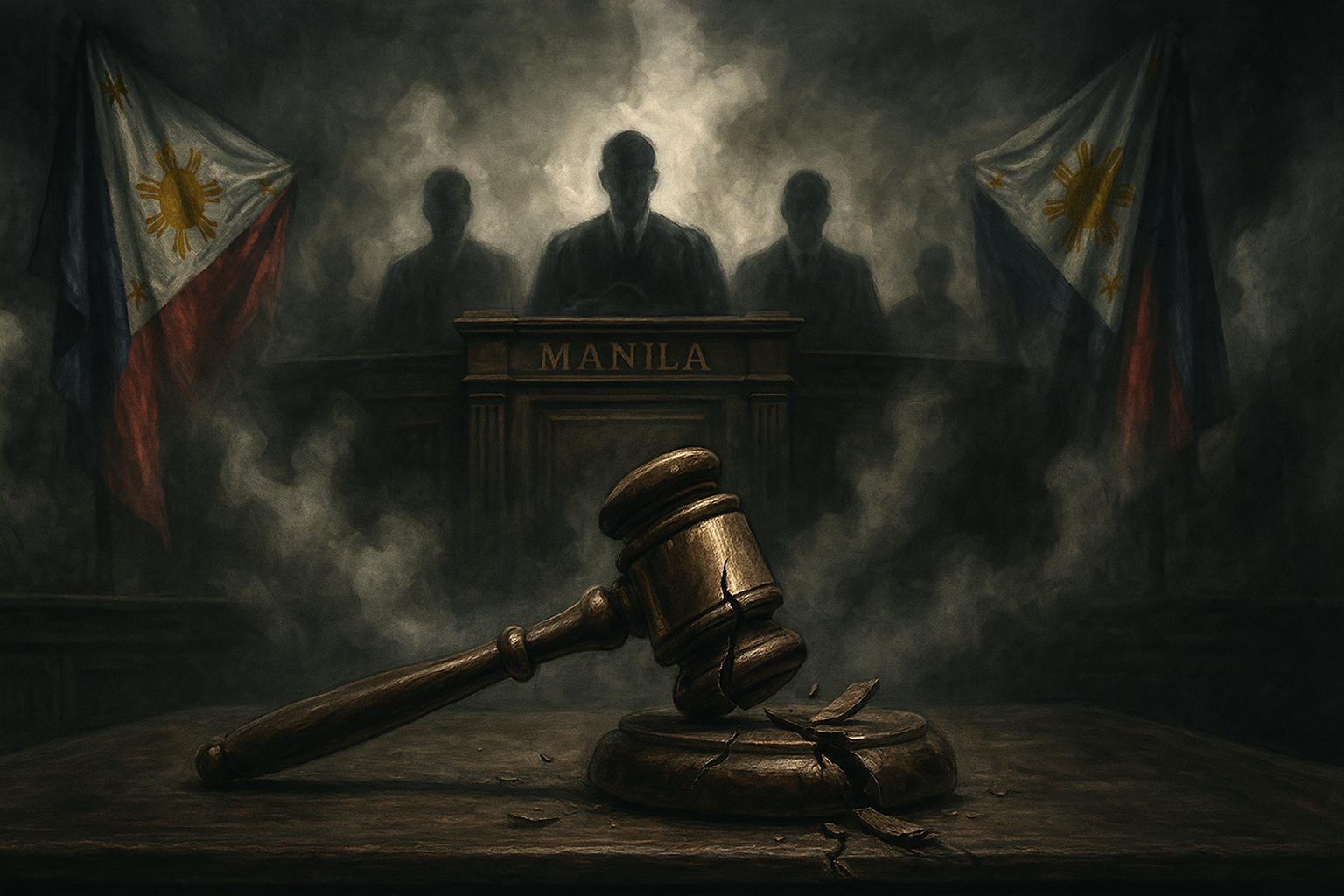
Procedural Violations or Necessary Justice?
The crux of Azcuna’s argument centers on a critical legal requirement: Philippine authorities were obligated to bring Duterte before a local court first. This crucial step would have established two essential factors: verification of Duterte’s identity as the person named in the warrant, and confirmation that he had been properly informed of the charges against him[3].
“These [were] not done,” Azcuna stated with unmistakable clarity. “Therefore, there was, in my view, a violation of the act of surrender”[3].
This explosive assessment directly contradicts statements from ICC-accredited Filipino lawyer Joel Butuyan, who just days earlier had insisted that “Philippine authorities adhered to the procedures of Republic Act No. 9851″[4].
Butuyan had argued that “Hindi kinakailangang dumaan sa domestic judicial authority” (It is not necessary to go through domestic judicial authority) as long as the accused’s identity is confirmed and rights respected[4].
The Marcos Administration’s Position
President Ferdinand Marcos Jr. has firmly dismissed suggestions of political persecution, framing the government’s actions as simple compliance with international obligations.
“Interpol asked for help, and we obliged because we have commitments to the Interpol which we have to fulfill,” Marcos stated during a Palace briefing. “If we don’t do that, they will not – they will no longer help us with other cases involving Filipino fugitives abroad”[2].
But Azcuna’s assessment throws this straightforward narrative into question, suggesting the administration may have overstepped legal boundaries in its eagerness to cooperate with international authorities.
The Bloody Legacy at the Heart of the Case
Behind the legal maneuvering lies a human tragedy of staggering proportions. The ICC’s warrant charges Duterte with murder as a crime against humanity, covering alleged extrajudicial killings from 2011 to 2019, spanning both his time as mayor of Davao City and as president[1].
While official police statistics acknowledge over 6,000 deaths in Duterte’s notorious “war on drugs,” human rights organizations estimate the true toll exceeds 30,000 lives—many from impoverished communities[1].
“Rodrigo Duterte’s arrest is a long-awaited and monumental step for justice for the thousands of victims and survivors of his administration’s ‘war on drugs,’ which turned much of the Philippines into a nation of mourning,” declared Agnes Callamard, Secretary General of Amnesty International[5].
What Happens Next?
The legal paradox identified by Azcuna creates a fascinating scenario: while Philippine courts might find procedural violations in Duterte’s surrender, the ICC operates under different rules.
“In the ICC I believe they follow what is called male captus, bene detentus — meaning that even if the arrest is illegal, the detention can be legal,” Azcuna explained. “It does not automatically mean that if the arrest was illegal, the person arrested must be released”[3].
The ultimate resolution now hangs in the balance, with both Philippine and international courts set to weigh competing claims of sovereignty against the pursuit of justice for alleged crimes that have left thousands of families mourning their dead.
As the world watches this unprecedented case unfold, one thing remains certain: the path to accountability for the bloody “war on drugs” will continue to reveal tensions between national sovereignty and international justice that will reshape Philippine politics for decades to come.
1. https://www.hrw.org/news/2025/03/12/philippines-duterte-arrested-icc-warrant
2. https://pco.gov.ph/news_releases/pbbm-dutertes-arrest-ph-commitment-to-interpol/
3. https://globalnation.inquirer.net/272440/fwd-warrant-of-arrest-legal-but-surrender-of-rodrigo-duterte-to-icc-not-azcuna
4. https://pco.gov.ph/news_releases/dutertes-arrest-complies-with-ph-law-says-icc-accredited-filipino-lawyer/
5. https://www.amnesty.org/en/latest/news/2025/03/philippines-former-president-dutertes-arrest-a-monumental-step-for-justice/

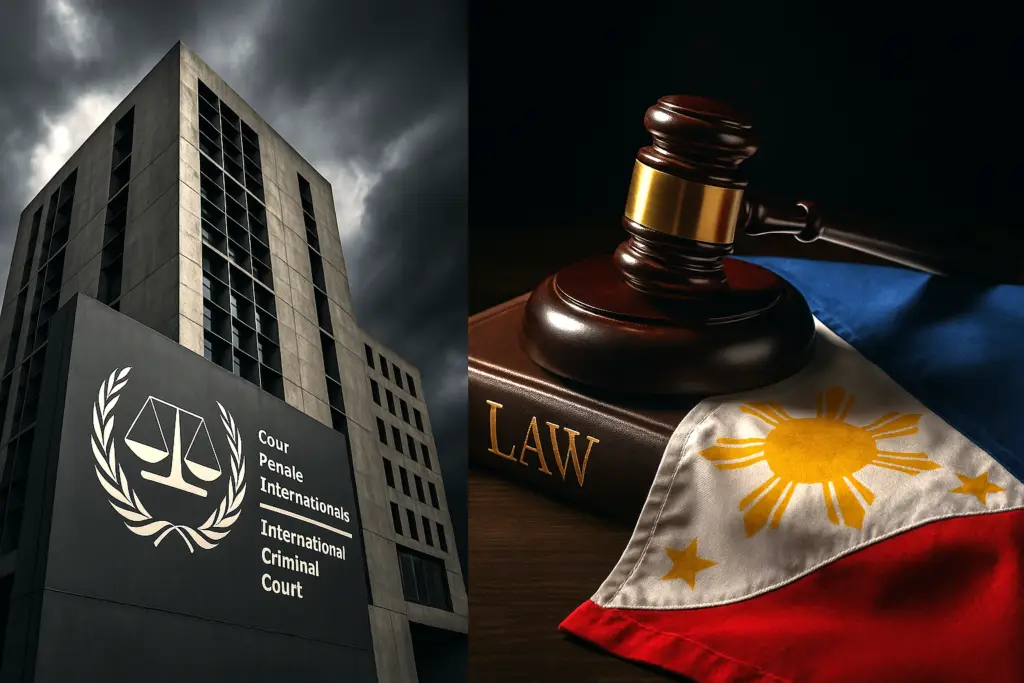
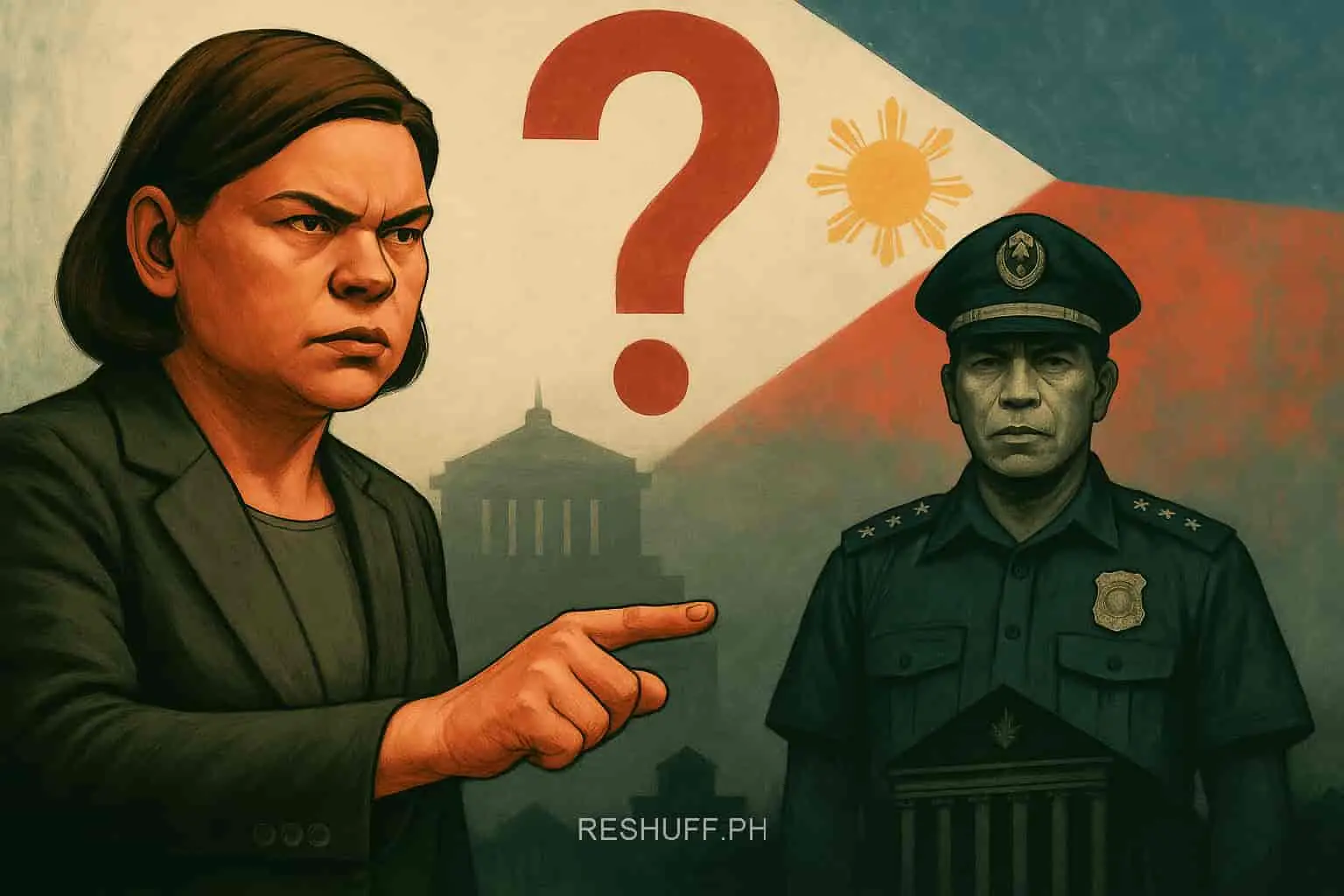
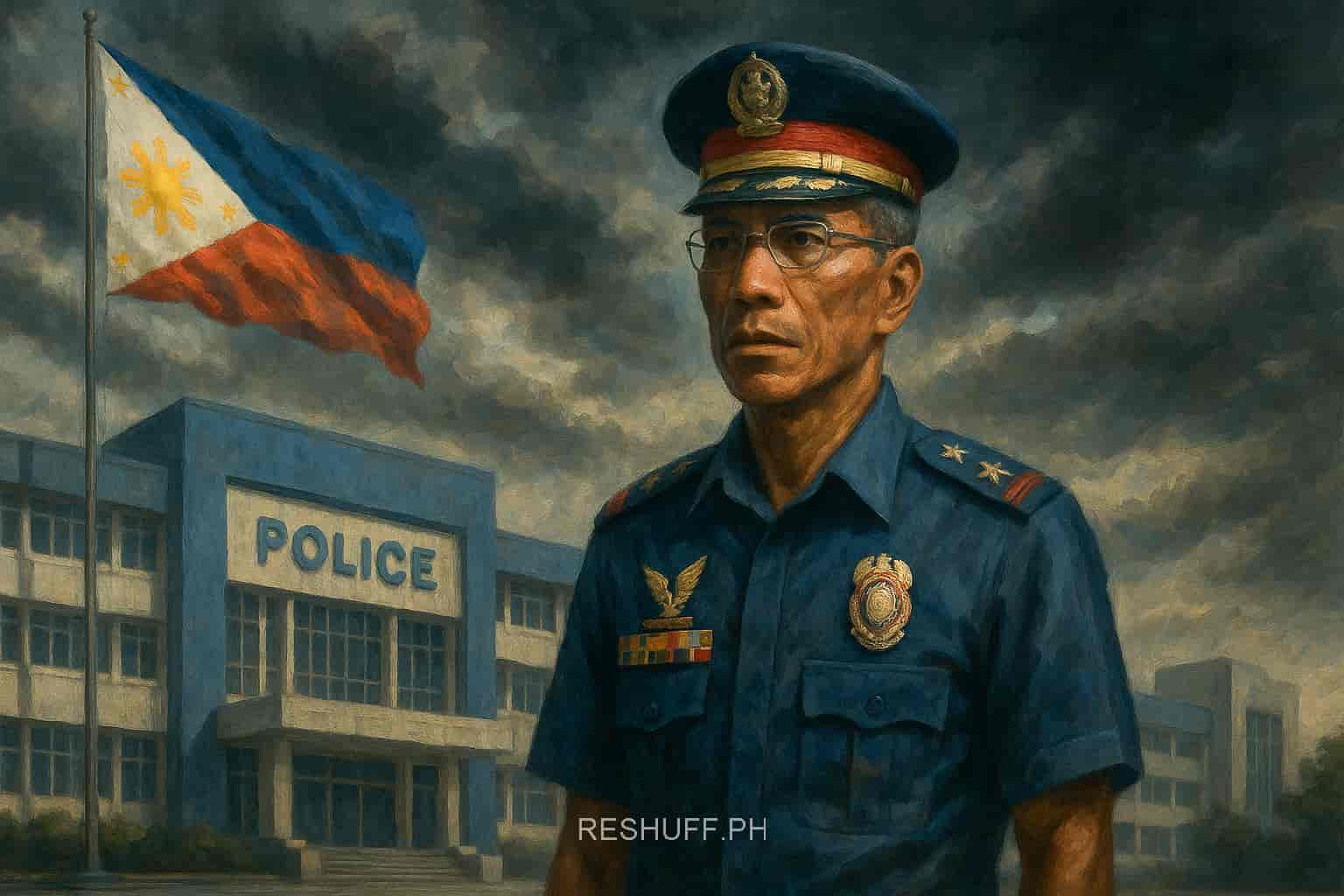
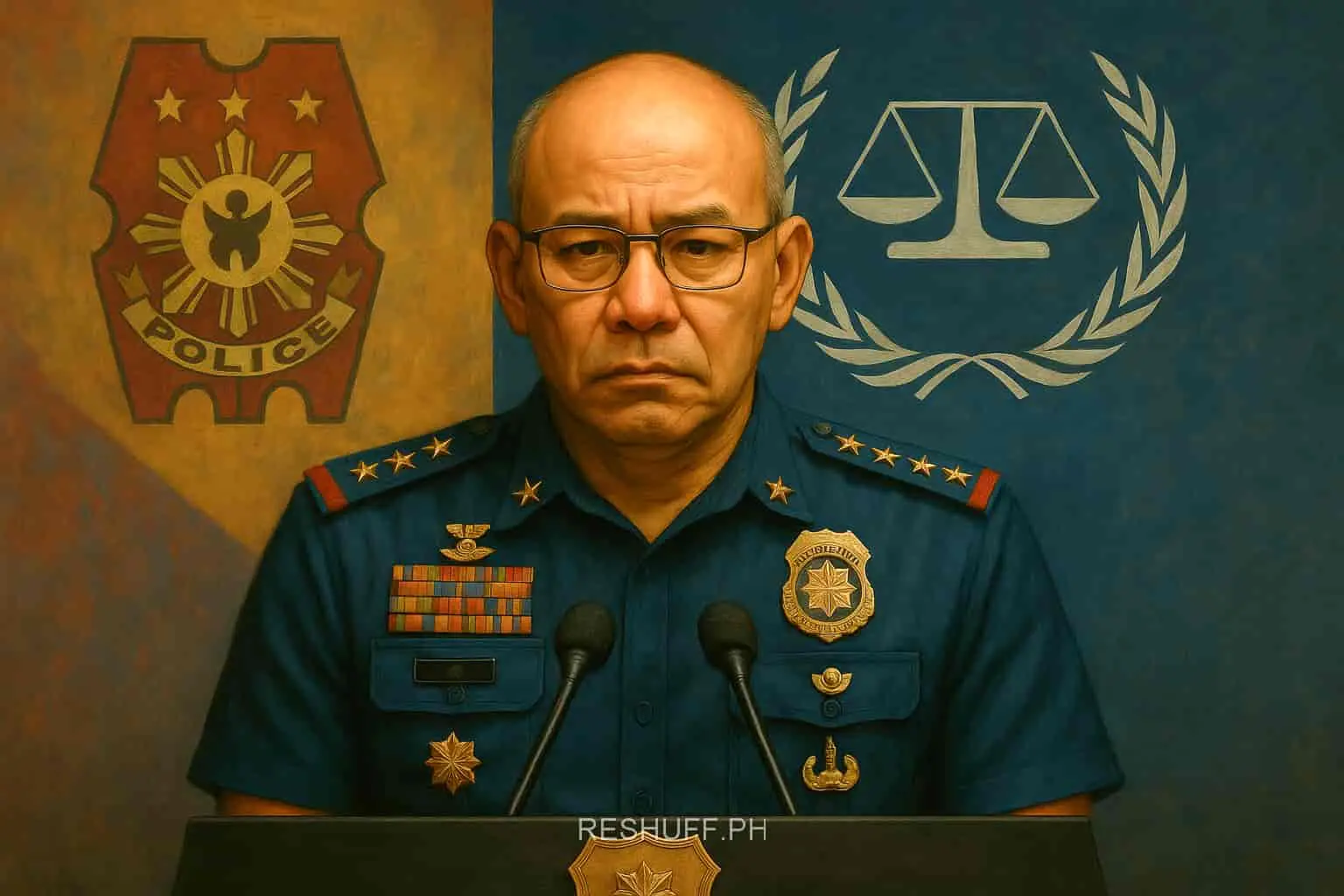
4 Responses